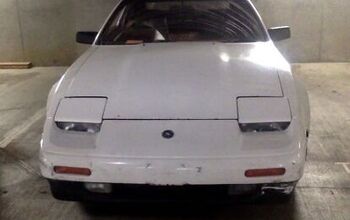Stellantis Introducing 84 Hour Work Week in Sterling Heights

Stellantis is reportedly bringing back a controversial policy that would have skilled trade workers doing 12 hour days for 7 days a week as a way to maximize shift coverage. The original arrangement had staff pushing long hours only to be rewarded with a full week off. But it was temporarily nixed after workers complained about the schedule and fretted over how the change might impact benefits. An alternative schedule prioritizing flexibility was created, though the automaker (still owned by FCA at the time) stressed that it needed more tradespeople working on the weekends to help avoid production gaps.
The 84 hour week is now back, with Stellantis testing it out at Sterling Heights Assembly, where the Ram 1500 is manufactured. However, it doesn’t appear to have grown in popularity.
From Freep:
An alternative work schedule for skilled trades was allowed as a result of the 2019 contract for then-FCA’s UAW members. The company has said alternative work schedules for skilled trades ensures plants have appropriate coverage levels across all production shifts, and the union was told weekends were a particular problem at high-volume plants like [Sterling Heights Assembly].
The plant has more than 7,800 workers, according to the company. Officials have said several hundred of them are skilled trades.
All but a couple of the dozens of skilled trades workers who have contacted the Free Press about the alternative work schedule have expressed frustration, saying they do not want to work 12-hour shifts over such a long stretch and be forced to work multiple weekend days in a month. They have expressed concern over its impact on overtime and other issues, too.
For what it’s worth, Stellantis knows that it needs to play catchup after pandemic-related lockdowns crippled supply chains and demand and this may be the best solution to maximize uptime. But we were less than impressed with its regurgitated, boilerplate response that basically blames Fiat Chrysler for any decisions it makes about scheduling: “During 2019 bargaining, FCA and the UAW agreed to a series of alternative work schedules for skilled trades to ensure the plants have the appropriate levels of coverage across all production shifts,” a spokesperson explained.
Interestingly, news of the schedule change has since been overshadowed by the announcement of payouts to about 43,000 Stellantis employees represented by the UAW. The $8,010 in profit sharing represents a modest but meaningful increase from the $7,280 checks issued last year.
“These figures demonstrate the financial soundness of Stellantis, bringing together two strong and healthy companies. Stellantis gets off to a flying start and is fully focused on achieving the full promised synergies,” the automaker said in the release.
[Image: Stellantis]

A staunch consumer advocate tracking industry trends and regulation. Before joining TTAC, Matt spent a decade working for marketing and research firms based in NYC. Clients included several of the world’s largest automakers, global tire brands, and aftermarket part suppliers. Dissatisfied with the corporate world and resentful of having to wear suits everyday, he pivoted to writing about cars. Since then, that man has become an ardent supporter of the right-to-repair movement, been interviewed on the auto industry by national radio broadcasts, driven more rental cars than anyone ever should, participated in amateur rallying events, and received the requisite minimum training as sanctioned by the SCCA. Handy with a wrench, Matt grew up surrounded by Detroit auto workers and managed to get a pizza delivery job before he was legally eligible. He later found himself driving box trucks through Manhattan, guaranteeing future sympathy for actual truckers. He continues to conduct research pertaining to the automotive sector as an independent contractor and has since moved back to his native Michigan, closer to where the cars are born. A contrarian, Matt claims to prefer understeer — stating that front and all-wheel drive vehicles cater best to his driving style.
More by Matt Posky
Latest Car Reviews
Read moreLatest Product Reviews
Read moreRecent Comments
- El scotto UH, more parking and a building that was designed for CAT 5 cable at the new place?
- Ajla Maybe drag radials? 🤔
- FreedMike Apparently this car, which doesn't comply to U.S. regs, is in Nogales, Mexico. What could possibly go wrong with this transaction?
- El scotto Under NAFTA II or the USMCA basically the US and Canada do all the designing, planning, and high tech work and high skilled work. Mexico does all the medium-skilled work.Your favorite vehicle that has an Assembled in Mexico label may actually cross the border several times. High tech stuff is installed in the US, medium tech stuff gets done in Mexico, then the vehicle goes back across the border for more high tech stuff the back to Mexico for some nuts n bolts stuff.All of the vehicle manufacturers pass parts and vehicles between factories and countries. It's thought out, it's planned, it's coordinated and they all do it.Northern Mexico consists of a few big towns controlled by a few families. Those families already have deals with Texan and American companies that can truck their products back and forth over the border. The Chinese are the last to show up at the party. They're getting the worst land, the worst factories, and the worst employees. All the good stuff and people have been taken care of in the above paragraph.Lastly, the Chinese will have to make their parts in Mexico or the US or Canada. If not, they have to pay tariffs. High tariffs. It's all for one and one for all under the USMCA.Now evil El Scotto is thinking of the fusion of Chinese and Mexican cuisine and some darn good beer.
- FreedMike I care SO deeply!

































Comments
Join the conversation
Many years ago I worked as a quality engineer in a large electronics assembly plant. Studying the root causes of workmanship related defects and scrap over a period spanning a full year, I found these types of defects increased anywhere from 3 to 5 times once that overtime exceeded between 25 to 30 hours a week. I interviewed many people, to seek an explanation. Those who spoke candidly mentioned that once you reach that threshold, your mind is so numb and your body aches so much that simply one didn’t give a sh!t about the job any more.
Take Stellantis only under doctors orders and don't take if you have high blood pressure, heart condition, diabetes, hypertension, high cholesterol, and if you are dead.